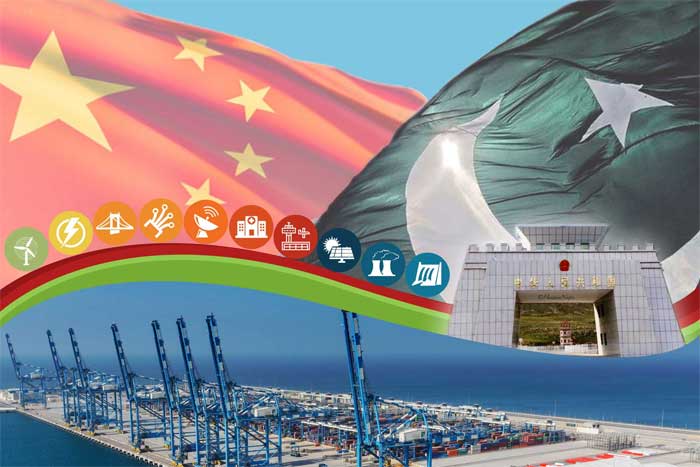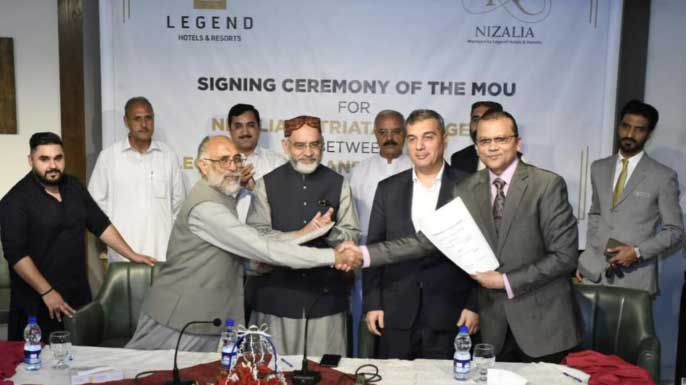BEIJING: Pakistan and China on Wednesday expressed the collective resolve to enhance economic cooperation, with renewed focus on the centrality of the China-Pakistan Economic Corridor (CPEC) and its high-quality development.
The bilateral relations were discussed in a meeting between Caretaker Prime Minister Anwaar-ul-Haq Kakar and Member of the Standing Committee of Politburo of Communist Party of China Li Xi.
The prime minister congratulated Li on the successful hosting of the 3rd Belt and Road Forum by China and felicitated him on his election as the member of Politburo Standing Committee.
The two leaders reaffirmed the commitment of Pakistan and China to strengthen bilateral political and economic ties and their unwavering support to each other on core issues.
The two leaders also discussed measures to increase the volume of Chinese investment in Pakistan, especially in ICT, mining, infrastructure and agriculture sectors.
They emphasized the importance of expanding industrial cooperation and the development of Special Economic Zones in Pakistan.
Prime Minister Kakar and Li exchanged views on anti-corruption and financial discipline.
The prime minister briefed the Chinese leader about measures taken by Pakistan for transparent and inclusive governance and evinced interest to learn from the Chinese experience.
Meanwhile, Pakistan and China on Wednesday agreed to further strengthen high-level dialogue and engagement besides deepening the political, economic, education, science & technology, cultural, and people-to-people relations.
The bilateral ties were discussed in a bilateral meeting between Caretaker Prime Minister Anwaar-ul-Kakar and Chinese Premier Li Qing on the sidelines of Third Belt and Road Forum (BRF) here.
Accompanied by the ministers and senior officials, the two leaders reaffirmed the time-tested and iron-clad friendship between Pakistan and China.
Prime Minister Kakar extended felicitations to the Chinese leadership on the successful holding of the Third Belt and Road Forum (BRF).
Noting the depth and breadth of the Belt and Road Initiative (BRI), the prime minister termed it as a project of immense significance for the world in terms of connectivity and shared prosperity.
The two leaders discussed bilateral collaboration in the context of CPEC and prospects of further deepening economic linkages.
Prime Minister Kakar underscored the importance of CPEC for Pakistan’s economy and noted with satisfaction its expansion into new areas of development – including industrial development; livelihood projects; ICT; mining and minerals exploration and agriculture.
He expressed the confidence that Chinese investment in Special Economic Zones (SEZs) will contribute in diversification of Pakistan’s export basket and expansion of its industrial base.
Premier Li Qiang underlined the steady growth of bilateral cooperation and noted the positive momentum of CPEC projects. He hoped that leadership consensus would give further boost to trade and economic relations between the two countries.
The two prime ministers also witnessed the signing ceremony in which several MoUs/Agreements were signed in areas of commerce, communication and transport including MLI, connectivity food security & research, media exchanges, space cooperation, urban sustainable development, capacity building, mineral development and industrial cooperation, climate change, vaccine development.
Meanwhile, caretaker Prime Minister Anwaar-ul-Haq Kakar on Wednesday said that the government was taking business-friendly and pro-investment initiatives to bring about the economic development in the country.
The prime minister, in a meeting with a delegation of East Sea Group led by Chairman Fang Yulong, highlighted pro-business policies of the government.
The meeting took place on the sidelines of the Belt and Road Forum held here.
He said the government was encouraging the private sector and providing a conducive atmosphere to enable it play an effective role for country’s economic development.
Pak, China resolve to enhance the economic coop and high quality CPEC project’s uplift




